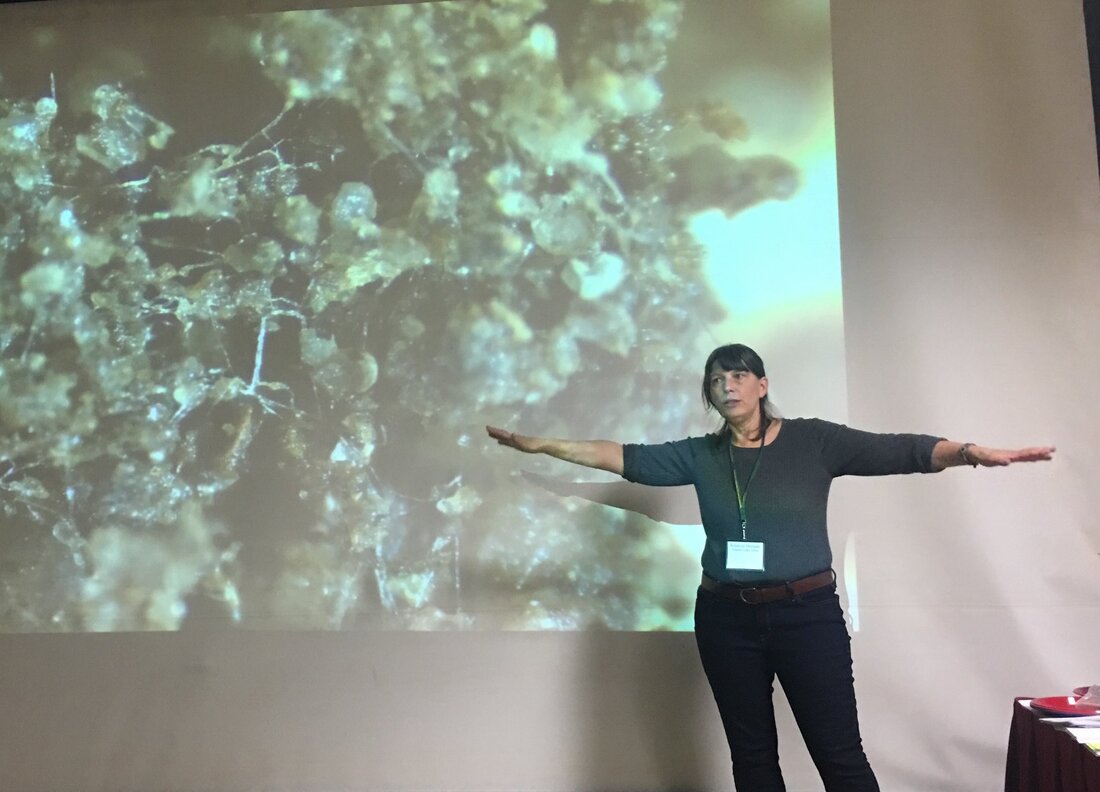|
I set aside perfectionism for a couple of days to make this video (complete with unrehearsed goofy drawings) to be shown on the Ecosystem Restoration Camps livestream last Saturday. It was partly inspired by morning meetings that author Carol Sanford hosted online for free for the last two weeks, based on her new book, The Regenerative Life. Carol's meetings were a deep dive full of exercises in which we explored ourselves, our energy drains, our aims, and the roles we might play in regenerating and caring for living systems, while using the uncertainty and destabilization we are experiencing right now.
Carol never teaches anything the same way twice, to ensure that she herself keeps developing. Inspired by her admonition to stop being so automatic about the way we approach projects, and instead to design things freshly for the moment, I decided that I would create something brand new for the event I was speaking at on Saturday. One of the interesting things about the process was that in making the cartoons I had to think about the essence of a couple of things I had never drawn before in order to convey them in just a few lines: what is the essence of a ventilator? What is the essence of a garbage/recycling truck? What is the "essence" of death/deadness of living things? I've never shared my drawings before, but realized that in this case, the drawings being sort of scrawled and imperfect and incomplete was a great way of showing an idea. I wanted viewers to experience an image of the fact that our human view of what's happening in the world, and our human ways of approaching problems are rushed and incomplete, created out of a sense of urgency. They are like cartoon stories we've made up about how things work, involving mechanical systems we have imposed on life itself. Whereas the actual natural world is far more colorful, complex, nuanced, alive, and ever-changing in the way it works and continually adapts and changes. Another reason I decided to use drawing, with all its imperfections, is that I think some of our own essence comes through in our drawings. So that was a way of me showing myself, somewhat nakedly, to the world. Two of the aims I found for myself during Carol's deep dive were "Tell Nested Stories, Using Images" and "Delight in Imperfection." It was interesting to watch my "Meta-Roles" (as Carol calls them in her book) at work, as the project unfolded. I intentionally put Educator in a side role, giving it a small job to keep it quiet (which is unusual) and instead invited two parts of me that have gotten short shrift over the last five years--Spirit Resource and Media Content Creator--to collaborate with my more familiar Entrepreneur/Paradigm Shifter and Earth Tender roles. The fact that I was able to take a risk and do it so quickly is directly an effect of the morning meetings, and was greatly helped by the fact that--due to the pandemic--both my adult sons have moved back home. They both are incredibly creative, and encouraged me to go for it. My son Alden sped up the screen captures of my drawings, and pieced it all together. Enjoy!
4 Comments
I love questions. Questions are like doorways that keep opening into other worlds. Our skill at asking questions peaks around age four or five and then is quickly hammered out of us by tired adults. We have to relearn the art of asking good questions, and that's one of the aims of my teaching.
The list of questions below is the list that the soil sponge course I've been teaching works to answer, through my own understanding, through the mentors I have studied with, and from the experiences of the incredible people who join the course.
I hope you'll join me as I continue to seek the myriad answers to this set of important questions. |
Didi Pershouse's
|

 RSS Feed
RSS Feed